Snow White and Christianity
How a Fairytale Reflects the Gospel of Grace
Snow White and the Seven Dwarfs (1937) was the first feature length animated film in the United States. It’s a triumph of cinema by Walt Disney, a simple tale of beauty, jealousy, and love based on the Brothers Grimm fairy tale.
A common criticism of the nearly 90-year old film is how little agency the heroine has in her own story. She is not the orchestrator of her escapes from death. She does not outwit the queen. She doesn’t even awaken herself. Her ultimate salvation comes not through merit, but through a love she never earned.
In essence...the gospel. This is Snow White and Christianity.
Providence in the Wilderness
Snow White’s survival in the film depends on a series of nearly laughable improbabilities that feel more like divine interventions than logical plot progressions. The huntsman, tasked with killing her, is suddenly moved by compassion and spares her life. She flees into the dark forest and finds shelter by quite literally stumbling upon the dwarfs’ cottage. She is not killed by the dwarfs, even though they are moments away from bludgeoning her to death while she’s sleeping. Even at the film’s end when she falls into her death-like slumber (thanks to one infamous poison apple), the dwarfs’ choose not to bury her, but to preserve her above ground in a glass coffin, which allows for the eventual rescue of true love’s kiss.
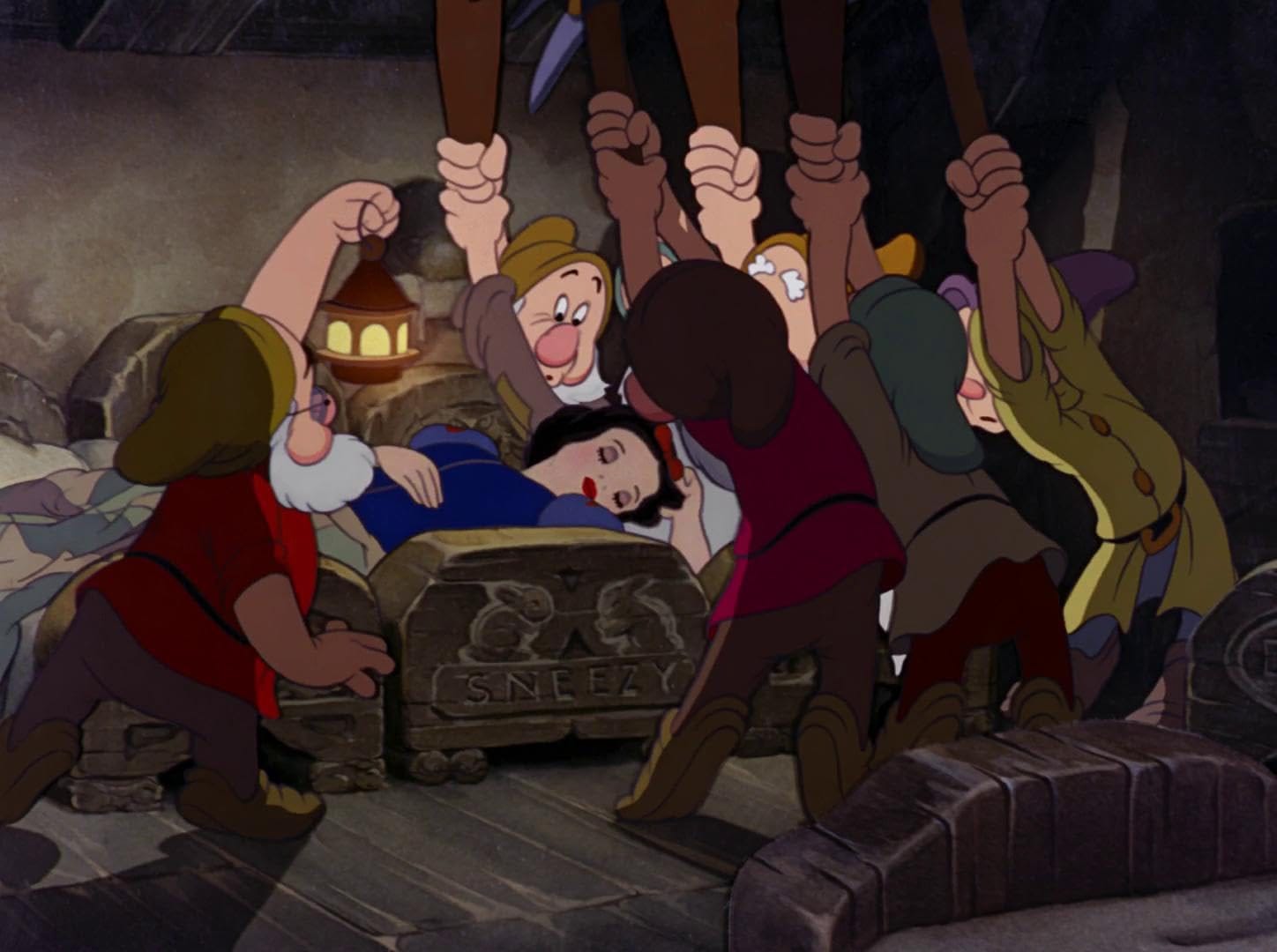
This bizarre orchestration of events seems to unintentionally reflect the providence of God. Snow White’s story is a tapestry of protection and provision that she neither designs nor commands.
And speaking of that poison apple, Snow White’s decision to eat the apple is one of the only moments of agency that her character is given...and she chooses poorly. By trusting the wrong voice, she falls into a sleep that resembles death. It is a poignant image of sin. In fact, the apple easily calls to memory the original sin in the Garden of Eden, something I’ve written about previously. As Paul writes in Ephesians 2:1, “And you were dead in the trespasses and sins in which you once walked.” We cannot awaken ourselves. We cannot cry out. Like Snow White in her glass coffin, we lie still, awaiting rescue.
The Prince Who Saves
And then, the prince comes.
Not because he was summoned. Not because Snow White did anything to ask for him. He comes because he loves her. He sees her in her lifeless state and gives her the kiss of life. A moment that on the surface feels culturally suspect (to say the least), actually takes on the greatest of spiritual significance.
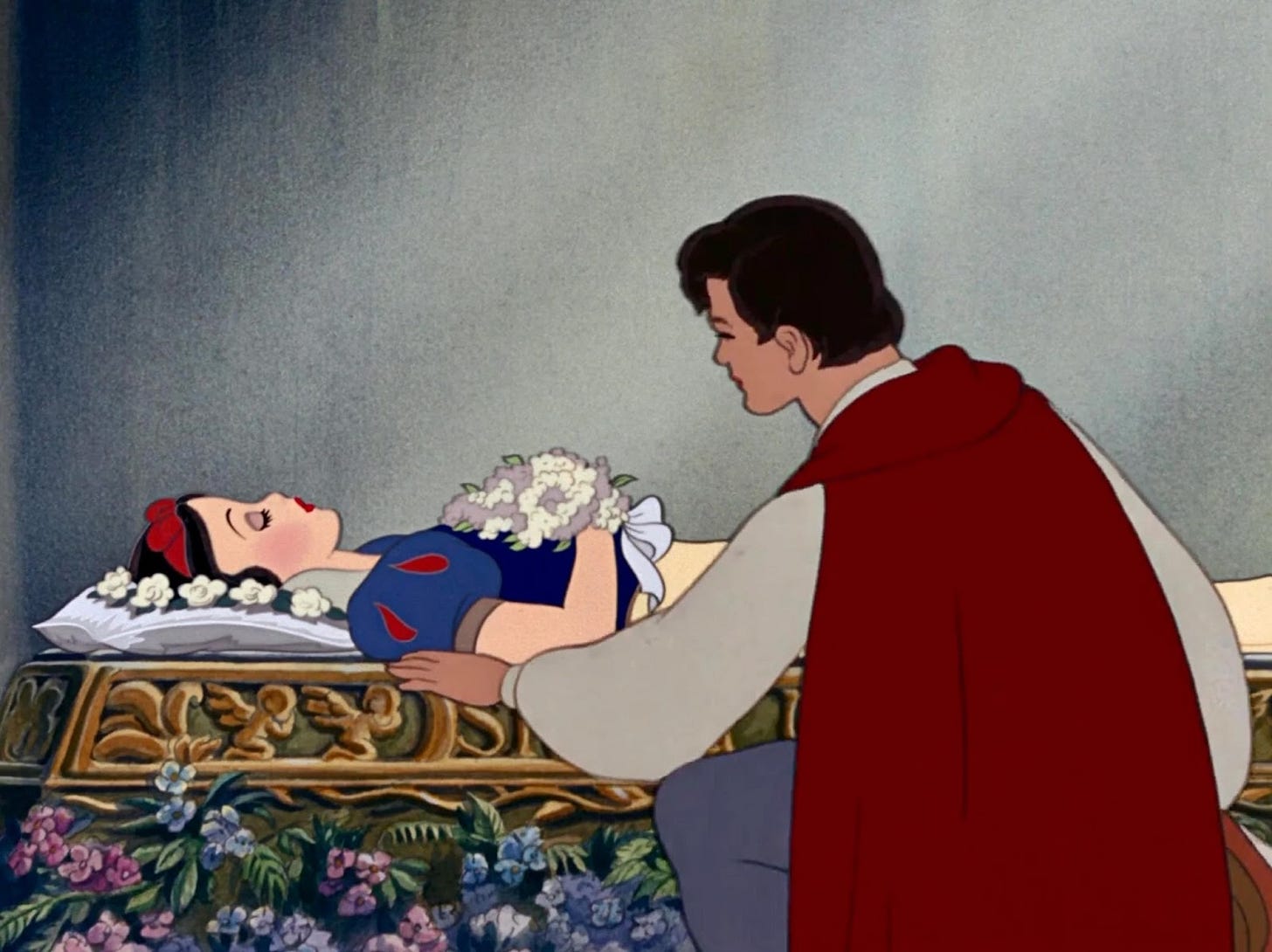
Here, the image becomes unmistakable: “We were dead because of our sins, but God loved us so much he made us alive with Christ, and God's gift of undeserved grace is what saves you. God raised us from death to life with Christ Jesus, and he has given us a place beside Christ in heaven.” (Ephesians 2:4–6).
It’s a story choice and characterization that secular audiences have struggled to come to terms with, painting Snow White as more of a damsel in distress than a brave heroine. But her role in salvation—and ours—is simply to be rescued. This is grace. Pure, unearned, sovereign grace.
And while Snow White may have little agency in the film, she does want to be saved. Midway through the film she sings “Someday My Prince Will Come,” a song that rings with a deeper longing, a yearning for salvation, for the coming of one who will make all things right. Christians know this cry well. We too wait, groan, and hope. “We wait eagerly for adoption as sons, the redemption of our bodies” (Romans 8:23). The bride awaits the Bridegroom.
In the final moments of the film, the imagery becomes heavenly—and I don’t mean that metaphorically. In perhaps the clearest evidence of the film’s spiritual meaning, the prince leads Snow White to his kingdom, which appears high above the clouds, glowing with an ethereal light.
“Then I saw a new heaven and a new earth… the holy city, new Jerusalem, coming down out of heaven from God, prepared as a bride adorned for her husband.”
- Revelation 21:1–2
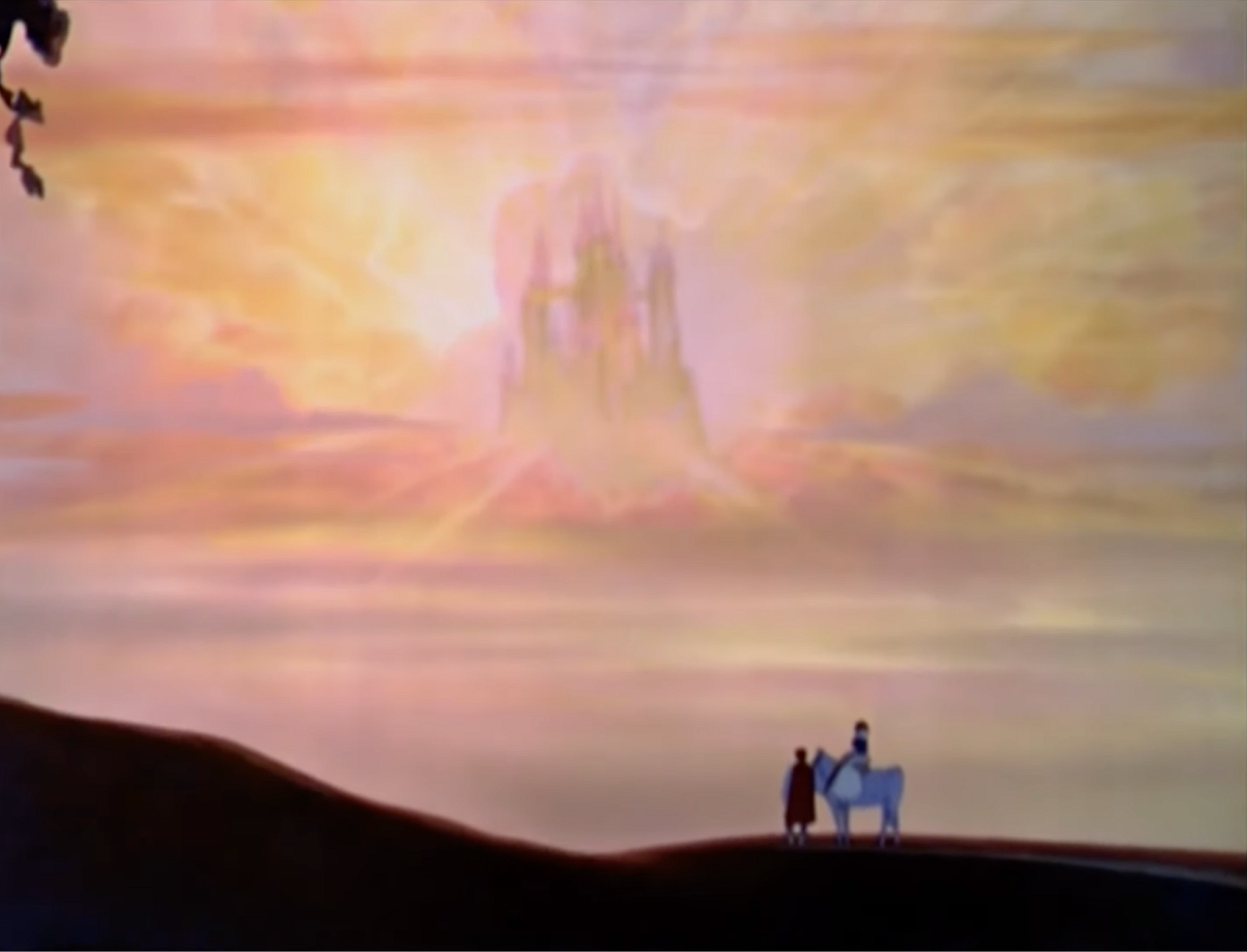
Is Snow White Really About Christianity?
Of course, as with most secular films, this isn’t a perfect analogy. The simplest interpretation of the fairy tale film is that Snow White’s status as “fairest of them all” is the likely cause of the huntsman’s mercy, the dwarfs’ kindness, and the prince’s loving kiss of life.
That interpretation in and of itself is cause for alarm. Should a woman really be reduced to her beauty and romantic relationships? This framing is typically waved away as a product of the times, and indeed, Disney’s 2025 Snow White remake (my thoughts here) is successful in providing its protagonist with much more depth and agency than her 1937 animated counterpart.
But still, how does Snow White happen upon the dwarfs’ cabin in the vast, dark forest? What leads the prince to Snow White’s coffin? Why is the Evil Queen not killed by the dwarfs, but instead struck by lightning?
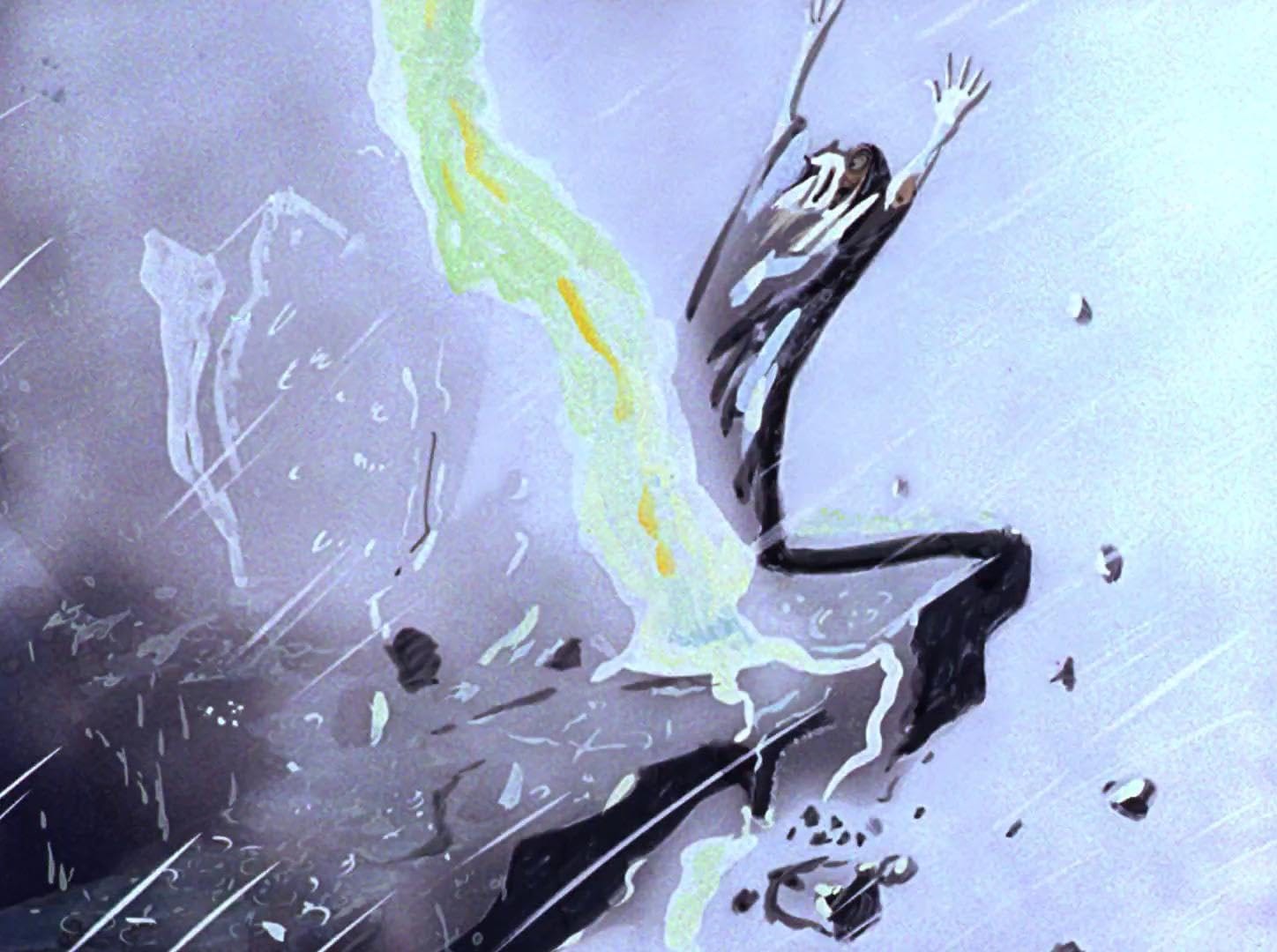
In reality, the narrative can be attributed to fairy tale logic and, yes, an outdated look on feminine roles in society. But if there is a lesson to be drawn from Snow White and the Seven Dwarfs for the Christian, it is not that we must be brave or clever to be saved, but rather the opposite: that our salvation is entirely outside of us. We are the ones under the curse. We are the ones lying still, dead in sin, incapable of waking ourselves.
But there is a Prince. And He comes not because we are worthy, but because He is loving. And when He comes, He brings life.
Snow White is not a theological treatise. But it is a story that, perhaps unknowingly, reflects the deepest truth of our faith.
That even in our slumber, even in our death, salvation still came.


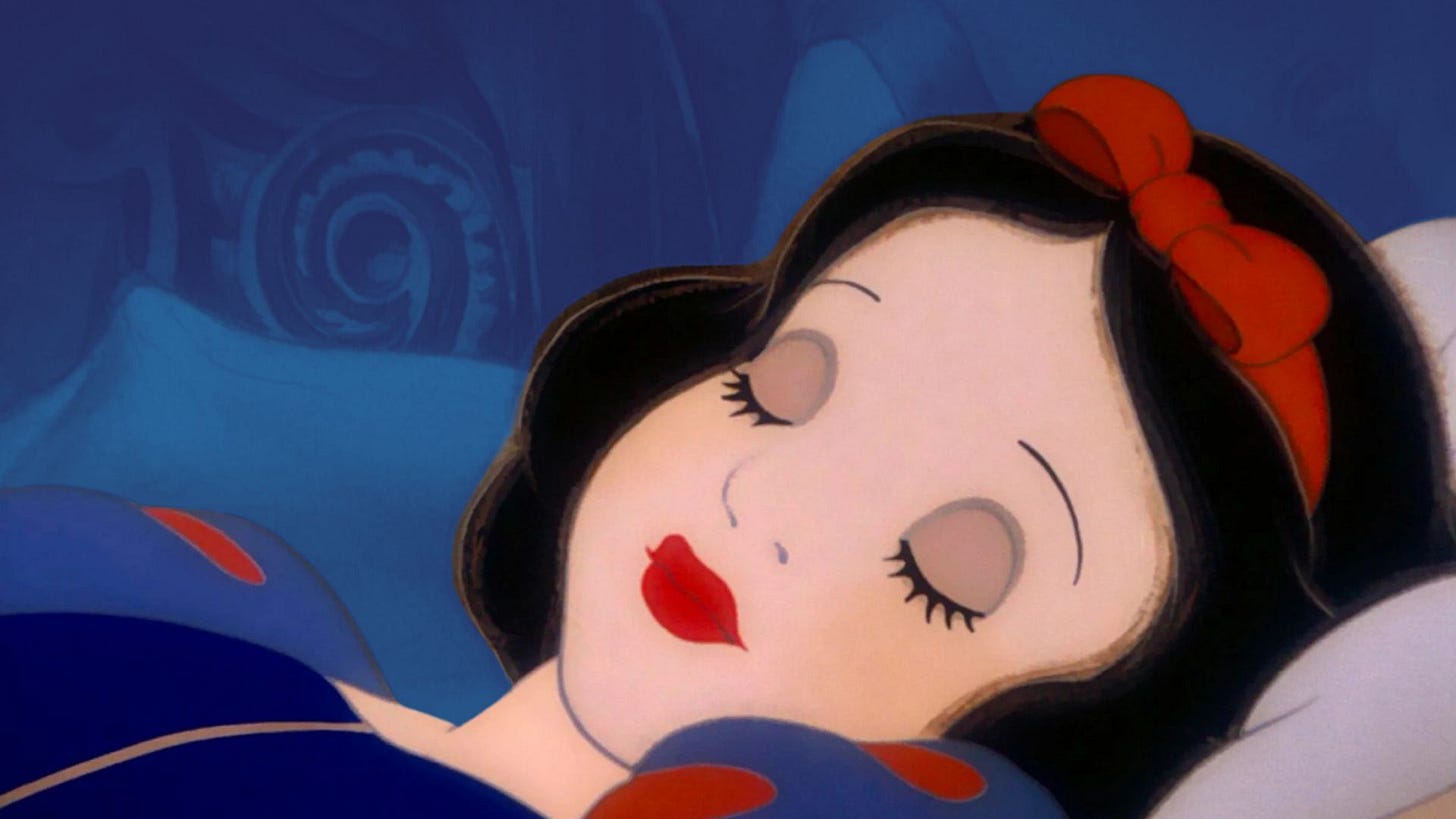
Love it! ❤️